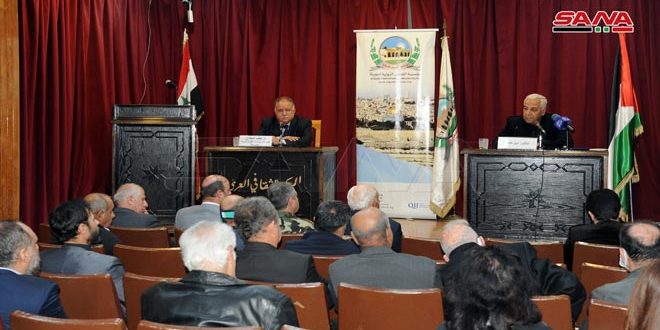The emergence of secularism, the stages it went through, its emergence as a term, and the ambiguity about its meaning were the axes of a lecture delivered by Researcher Nabil Toamah, a member of the Board of Trustees of Jerusalem Foundation. The lecture, entitled “Secularism and Historical Contexts,” was held by the Cultural Center in Abu Rummaneh and Jerusalem International Foundation – Syria.
Dr. Khalaf Al-Muftah, Director General of Jerusalem International Foundation, spoke about the meaning of secularism throughout history, its connection with beliefs, its targets, and the view of the thinkers to it.
Dr. Toamah asserted that secularism “does not carry the commonly circulated meaning, that is the separation of religion from the state, rather it intends not to link beliefs and politics so that a person is not preoccupied with disputes that negatively impact his life as politics and the homeland are everyone’s right.
Toamah cast light on the contemporary thought of secularism and its role in the idea of the modern state since the seventies of the last century. This thought is based on respect for diversity and adherence to the scientific method in the relationship of man with his surroundings and the world around him.
Secularism combines between science and reality, the mind and the intellectual works which make it a method that helps the development of civilization as is the case in Syria. Throughout its history, Syria was an example of diversity and coexistence and became a destination for many different intellectual and social components to live in because it applied the comprehensive concept of science and a healthy and humane social reality.
Inas Abdulkareem

